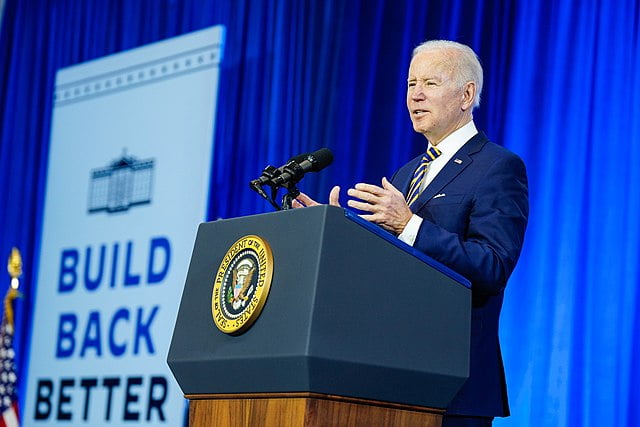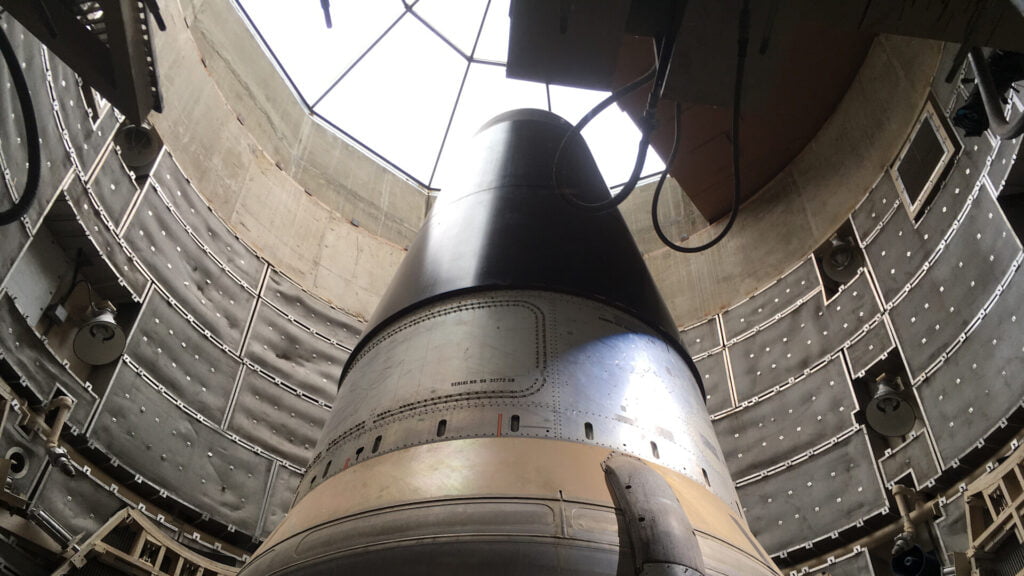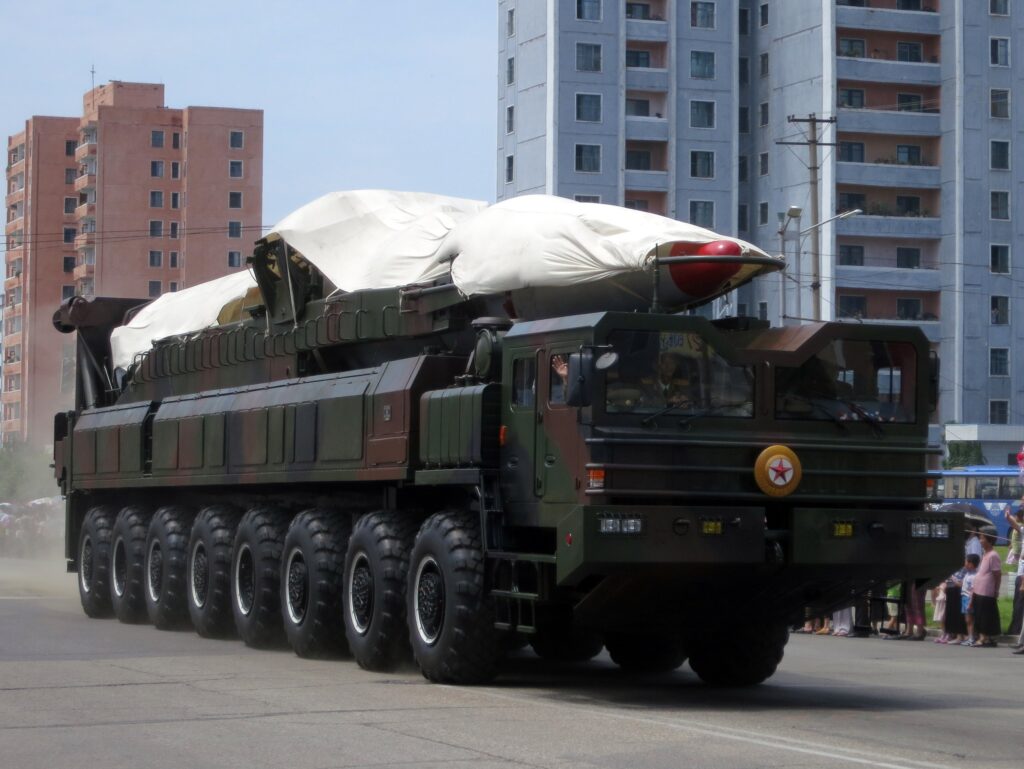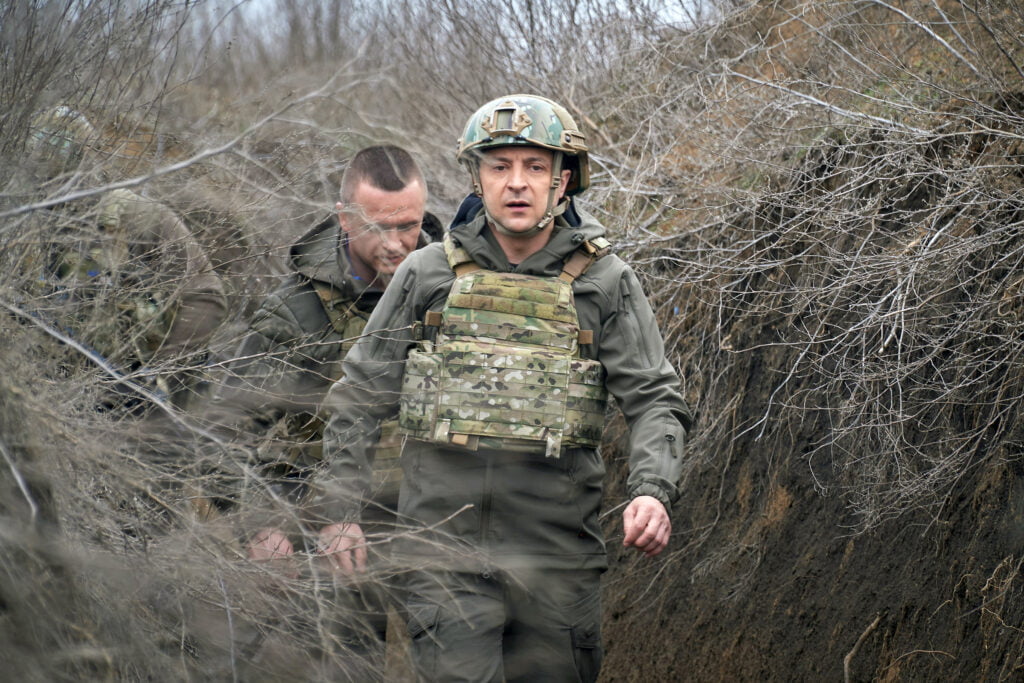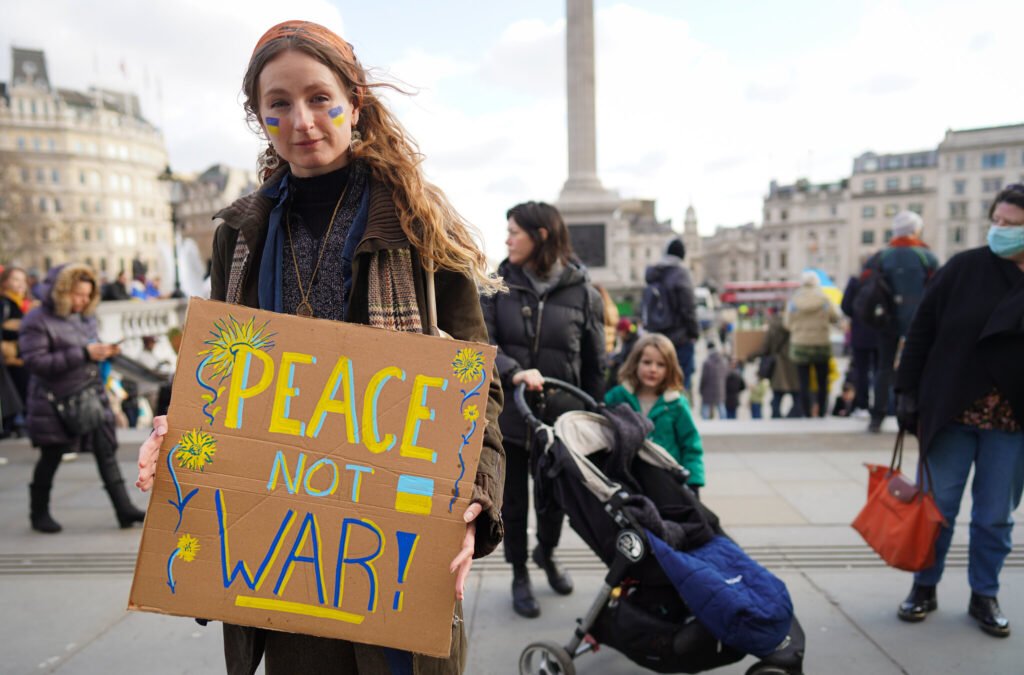The war in Ukraine may reverse non-proliferation measures including the fragile détente between India and Pakistan.
 A night time view of India-Pakistan borderlands: Marshall Space Flight Center, NASA
A night time view of India-Pakistan borderlands: Marshall Space Flight Center, NASA
The war in Ukraine may reverse non-proliferation measures including the fragile détente between India and Pakistan.
When the ‘father’ of the atomic bomb, scientist J. Robert Oppenheimer, witnessed the first nuclear test in New Mexico in July 1945, he was reminded of Hinduism’s most important text, the Bhagvat Gita.
“Now I am become death, the destroyer of worlds!” were the words brought to his mind.
Less than a month later Hiroshima and Nagasaki were bombed. And while the deadly apparition of nuclear weapons being used in conflict has often been imagined since then, especially during multiple crises of the Cold War (including the Cuban Missile Crisis), it has never been witnessed in reality.
Suddenly, with one direction from Russian President Vladimir Putin, the spectre of a nuclear weapon being detonated has acquired a fresh and frightening new salience. Not since the end of the Cold War has the threat to the effectiveness of the nuclear non-proliferation regime been as intense or widespread.
Putin’s alarming and audacious decision, warning the United States and its NATO allies he would be willing to use whatever means necessary to secure Moscow’s interests in Ukraine, has given new urgency to moves towards a time-bound plan for nuclear disarmament.
A less noticeable event occurred on March 9 in South Asia. A missile was fired accidentally from India into Pakistan. While the Indian Defence Ministry blamed the incident on a “technical malfunction” that was “deeply regrettable”, the missile flew (according to Pakistan) more than 100 kilometres inside its airspace, at an altitude of 40,000 feet and at three times the speed of sound, before it landed. There was no warhead on the missile, but it was one of the only times that such an incident had happened between two nuclear-armed countries.
The Putin announcement had immediate and long-term consequences for the future of Europe. It threatens the stability of the international system including in the Indo-Pacific region and has punctured the principles holding the nuclear non-proliferation regime together.
The South Asian incident renewed concerns about nuclear accidents and unauthorised use of nuclear weapons. Together they demonstrate a desperate need to address the global nuclear threat.
There are five principal implications that flow from these incidents.
First, by putting nuclear forces on alert, Putin has relegated to history the success of arms control agreements, the earlier policies of Ostpolitik that had contributed to détente, and the removal of the fear of a major war, especially nuclear war. Stability and security in Europe is now passé, as the region witnesses a new phase of instability.
Second, the wisdom of the decision of Ukraine to voluntarily give up its nuclear weapons and sign the Non-Proliferation Treaty (NPT) is being widely questioned. That a nuclear-armed state, Russia, could threaten a non-nuclear state that had forsaken nuclear weapons has generated a new phase of deep insecurity and vulnerability.
Countries like Taiwan and indeed Japan, which have the capacity to manufacture nuclear weapons and are facing a hostile, aggressive and hegemonic China, may be persuaded and tempted to break out and acquire nuclear weapons.
Third, countries like North Korea and Iran, often isolated as ‘nuclear rogues’ for acquiring or being on the verge of acquiring nuclear weapons, may now become the role models for states who are either not part of an alliance system or have little faith in an ‘ostensible’ nuclear umbrella promised to them. This could well happen in Europe itself.
Fourth, the accidental mishap with a potentially nuclear-capable missile in South Asia suggests both India and Pakistan need to go back to reviving the confidence-building measures they had agreed upon at the Lahore Summit, triggered after both tested nuclear weapons in 1998.
At the time, both committed “to bilateral consultations on security concepts, and nuclear doctrines, with a view to developing measures for confidence building in the nuclear and conventional fields”. More importantly, the two sides had agreed “to provide each other with advance notification in respect of ballistic missile flight tests, and shall conclude a bilateral agreement in this regard”.
They also “fully committed to undertaking national measures to reducing the risks of accidental or unauthorised use of nuclear weapons under their respective control”. A dialogue on nuclear and military confidence-building measures, even to the exclusion of all other issues, is immediately required at a time when there is little official communication between the two sides.
Finally, the NPT offered a grand bargain: an implicit assurance that non-nuclear states would not be targeted. They could get access to civil nuclear energy while nuclear weapon states pursued disarmament in good faith. That bargain is on the verge of complete collapse.
The only way to rescue the NPT and the larger nuclear non-proliferation regime is if the UN Security Council calls for a convention to negotiate a time-bound plan for nuclear disarmament that is comprehensive and verifiable.
Amitabh Mattoo is a Professor at the School of International Studies, Jawaharlal Nehru University, and concurrently serves as Honorary Professor of International Relations at the Faculty of Arts, University of Melbourne. He also serves as Chairman of the Governing Board of Miranda House, University of Delhi.
Originally published under Creative Commons by 360info™.



